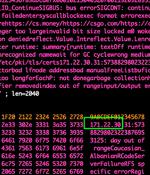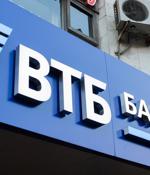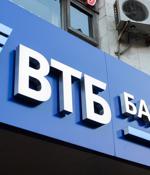Security News

An ongoing analysis of the KmsdBot botnet has raised the possibility that it's a DDoS-for-hire service offered to other threat actors. KmsdBot is a Go-based malware that leverages SSH to infect systems and carry out activities like cryptocurrency mining and launch commands using TCP and UDP to mount distributed denial-of-service attacks.

A new cross-platform malware botnet named 'MCCrash' is infecting Windows, Linux, and IoT devices to conduct distributed denial of service attacks on Minecraft servers. "Our analysis of the DDoS botnet revealed functionalities specifically designed to target private Minecraft Java servers using crafted packets, most likely as a service sold on forums or darknet sites," explains the new report by Microsoft.

Microsoft on Thursday flagged a cross-platform botnet that's primarily designed to launch distributed denial-of-service attacks against private Minecraft servers. Called MCCrash, the botnet is characterized by a unique spreading mechanism that allows it to propagate to Linux-based devices despite originating from malicious software downloads on Windows hosts.

In addition to a total of seven suspected booter site administrators detained thus far, "Further actions [are] planned against the users of these illegal services," the European cops said. While some of the sites claimed to offer "Stresser" services, ostensibly to help organizations test whether their networks could withstand a DDoS flood, after reviewing "Thousands of communications between booter site administrators and their customers; these communications make clear that both parties are aware that the customer is not attempting to attack their own computers," according to an FBI affidavit [PDF] filed in support of court-authorized warrants to seize the sites.

In DDoS Protection, Gcore uses the bundle of XDP and regular expressions. There are two approaches to filtering out malicious traffic in DDoS Protection: packet parsers and handling regular expressions.

The U.S. Department of Justice on Wednesday announced the seizure of 48 domains that offered services to conduct distributed denial-of-service attacks on behalf of other threat actors, effectively lowering the barrier to entry for malicious activity. These websites, although claiming to provide testing services to assess the resilience of a paying customer's web infrastructure, are believed to have targeted several victims in the U.S. and elsewhere, such as educational institutions, government agencies, and gaming platforms.

The US Department of Justice has seized 48 Internet domains and charged six suspects for their involvement in running 'Booter' or 'Stresser' platforms that allow anyone to easily conduct distributed denial of service attacks."Some sites use the term"stresser" in an effort to suggest that the service could be used to test the resilience of one's own infrastructure; however, as described below, I believe this is a façade and that these services exist to conduct DDoS attacks on victim computers not controlled by the attacker, and without the authorization of the victim," reads an affidavit by FBI Special Agent Elliott Peterson out of the Alaska field office.

Where's the Night's Watch when you need them? Microsoft has warned Europe to be on alert for cyber attacks from Russia this winter, just as a series of attacks hit Russian organizations –...

Russia's second-largest financial institution VTB Bank says it is facing the worse cyberattack in its history after its website and mobile apps were taken offline due to an ongoing DDoS...

Russia's second-largest financial institution VTB Bank says it is facing the worse cyberattack in its history after its website and mobile apps were taken offline due to an ongoing DDoS attack. "At present, the VTB technological infrastructure is under unprecedented cyberattack from abroad," stated a VTB spokesperson to TASS. "It is not only the largest cyberattack recorded this year, but in the entire history of the bank."